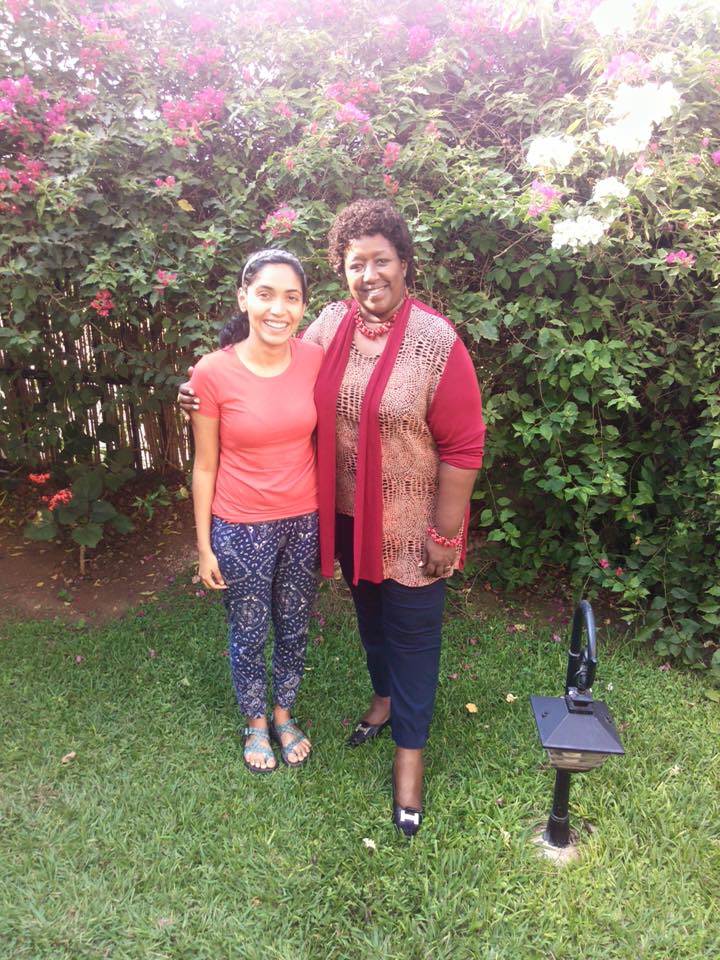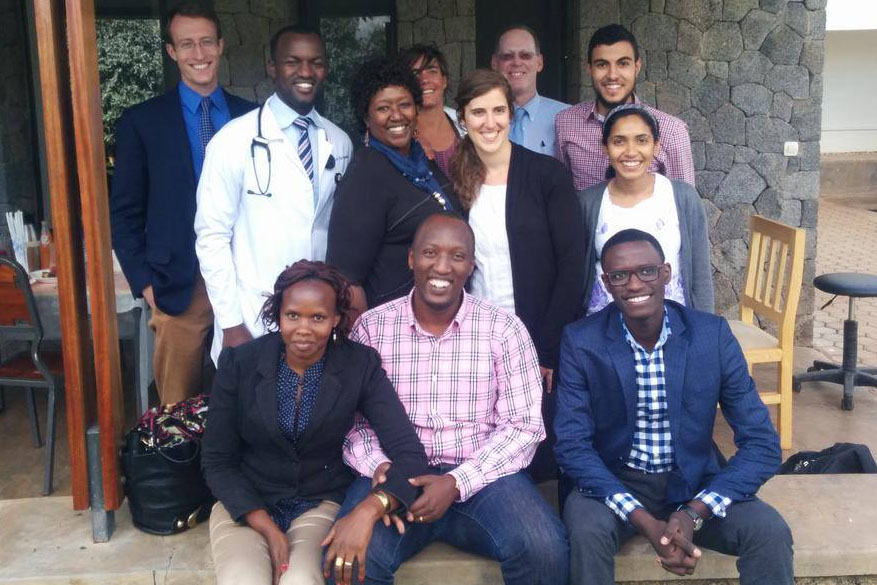Anisha Hegde spent her summer writing a pilot survey to improve prenatal care for women in Rwanda on behalf of that African nation’s Ministry of Health. How she got there is pretty surprising.
“It was kind of something that came out of nowhere,” Hegde said.
The second-year University of Virginia medical student’s interest in Rwanda was piqued by two of her teachers, Drs. Marcel Durieux and Rebecca Dillingham – the latter the director of UVA’s Center for Global Health.
“I was so impressed with how they had worked global health into their careers and how open they were to talking with students about that,” Hegde said. “They convinced me that this was something I should pursue.”

Anish Hegde and the Rwandan Minister of Health, Dr. Agnes Binagwaho.
To her surprise, Binagwaho invited the Bombay, India, native to come to Rwanda, so Hegde headed to Kigali in June not really knowing what to expect.
“If it was found that a mother had four or more prenatal visits, it was considered a success story, But that doesn’t say a lot about the quality of care that is being delivered during those visits.”
“Dr. Binagwaho was just fantastic and asked me what my interests were and what I wanted to do,” she said. They both decided it would be a good idea to assess the care being given to expectant mothers.
Previously, “If it was found that a mother had four or more prenatal visits, it was considered a success story,” Hegde said. “But that doesn’t say a lot about the quality of care that is being delivered during those visits.”
Hegde and two Ministry of Health doctors came up with a series of questions to delve deeper: “How many times was blood pressure taken? How many ultrasounds did a mother have? Was she educated about nutrition?” The team spent one week asking these and other questions of 100 women, making sure the survey made sense in Kinyarwanda, the predominant language spoken in Rwanda.
“From the pilot questionnaire, we hope to identify areas of interest to investigate further with a larger sampling of moms at varied hospitals,” Hegde said. “From the larger investigation, we hope to zero in on areas in which Rwanda's prenatal care system can serve as an example for other countries and other areas in which the system needs to be reevaluated and improved.”
The country is still recovering from the infamous 1994 genocide, when ethnic strife between rival Tutsi and Hutu tribes peaked. The Hutu-led government slaughtered approximately 1 million Rwandans, mostly Tutsis and some moderate Hutus.
Today, the median age in the country is 19. Despite the carnage, the country’s health system has made an incredible comeback, achieving important United Nations World Health Organization Millennium Development Goals in reducing child mortality and boosting maternal health. That is what drew Hegde to the country.
“It has a pretty compelling story,” she said. “Despite their lack of resources, I just kept hearing about all the successes they’ve had with their vaccination rates and with building a new cancer center.” This, she said, despite the lingering ramifications of the bloodletting.
“Immediately after the genocide in 1994, Rwanda was the poorest country in the world, receiving the fewest aid dollars,” Hegde said. “If you ask the honorable minister, she will tell you that they pretty much had to invent the wheel for Rwanda, because no one else was coming into the country to share best practices. What that allowed them to do was to formulate their own priorities,” an approach that has paid off.
Hegde, who was a literature major as an undergraduate, also wrote a chapter assessing Rwanda’s vaccination program for a book Binagwaho is going to publish.
She speaks glowingly of Binagwaho, the health minister, and the amount of time she invested in her. “I would tell her that global health was overwhelming to me because there are so many problems and who knows how to begin?
“She would always tell me, ‘Global health starts where your two feet are.’ And my two feet were in Rwanda.”
Media Contact
Article Information
October 22, 2015
/content/e-mail-query-leads-uva-medical-student-rwandas-health-ministry

